“April 13, the great day of victory 10 years ago, opened the way to the independence and unity of our Latin America and the Caribbean,” Venezuela's socialist President Hugo Chavez said on April 13. He was speaking during a commemoration of the uprising that toppled a short-lived military coup that aimed to crush the Chavez presidency .
“We showed that a people united will never be defeated.”
-
-
A series of protests, or Hikoi, will take place across New Zealand from April 24 to May 10, under the banner “Aotearoa Not For Sale”. The demonstrations are being organised against the pro-privatisation, pro-mining and anti-social agenda of the National Party government, led by Prime Minister John Key. The Hikoi will kick off at the top of New Zealand's north island at Cape Reinga on April 24.
-
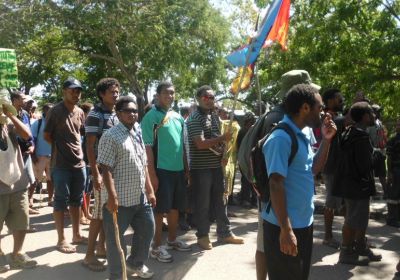 The crisis embroiling the government of Papua New Guinea has taken new turns as sections of the establishment struggle for power. Public outrage has grown against new laws that undermine the country's constitution. Just days after pledging it would not use the new powers of the Judicial Conduct Act to suspend judges, the government of Prime Minister Peter O'Neill suspended Chief Justice Sir Salamo Injia and Justice Nicholas Kirriwom on April 4.
The crisis embroiling the government of Papua New Guinea has taken new turns as sections of the establishment struggle for power. Public outrage has grown against new laws that undermine the country's constitution. Just days after pledging it would not use the new powers of the Judicial Conduct Act to suspend judges, the government of Prime Minister Peter O'Neill suspended Chief Justice Sir Salamo Injia and Justice Nicholas Kirriwom on April 4. -
The Sindh Progressive Committee (SPC), which brings together activists from the Labour Party, Workers Party, Communist Party, Jeay Sindh Mahaz, National Party, Awami Party and Watan Dost Inquilaabi Party, held a rally on April 17 outside the Hyderabad Press Club in the southern Sindh province. The rally protested against the kidnapping, forced conversion to Islam and forced marriage of young Hindu women.
-
One of the big challenges facing Cuba as it designs climate change adaptation policies is the preservation of its coastal ecosystems against the predicted rise in sea level and increasingly catastrophic extreme weather events. With the country’s 5500 kilometre of coastline and 4000 cays and islets, almost everyone on the Cuban archipelago feels their life is tied to the sea in one way or another. “It’s lovely, but it is also dangerous,” said 78-year-old Teresa Marcial, who lives on the coast in Santa Fe, in the northern outskirts of Havana.
-
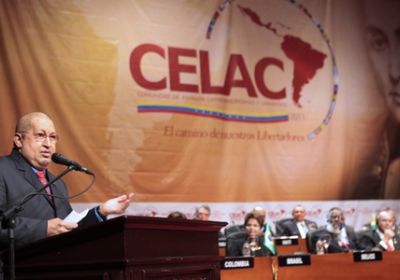 At the insistence of the United States and Canada, Cuba was excluded from the Sixth Summit of the Americas, an intergovernmental conference held in Cartagena, Colombia, over April 14-15. As a result of opposition from many Latin American nations over Cuba's exclusion, as well as Argentina's claim to sovereignty over the Malvinas (Falklands) islands, the summit ended with no final declaration signed. The summit, involving all nations in the Americas except Cuba, is ostensibly designed to facilitate dialogue, understanding and cooperation between nations of the region.
At the insistence of the United States and Canada, Cuba was excluded from the Sixth Summit of the Americas, an intergovernmental conference held in Cartagena, Colombia, over April 14-15. As a result of opposition from many Latin American nations over Cuba's exclusion, as well as Argentina's claim to sovereignty over the Malvinas (Falklands) islands, the summit ended with no final declaration signed. The summit, involving all nations in the Americas except Cuba, is ostensibly designed to facilitate dialogue, understanding and cooperation between nations of the region. -
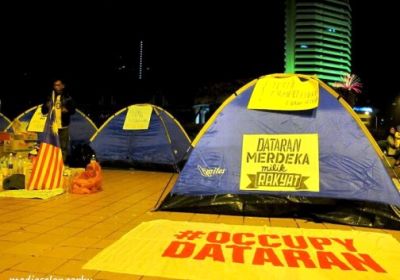
At 2.36am, in the early hours of April 19, the student and Occupy Dataran encampment in Kuala Lumpur was violently ambushed by a big group of men. After the ambush, everyone sat down, and victims of violence started to tell stories of what happened. Here is a brief summary of the stories.
-
 The Coalition of Free and Fair Elections (known as Bersih — which means “clean” in Malay) called for a mass sit in on April 28. It did so due to suspicions that the country’s Barisan Nasional (BN) government was about to call a general election before addressing widespread electoral irregularities. The irregularities were confirmed by a review forced on the government by the previous Bersih 2.0 mass rally on July 9 last year.
The Coalition of Free and Fair Elections (known as Bersih — which means “clean” in Malay) called for a mass sit in on April 28. It did so due to suspicions that the country’s Barisan Nasional (BN) government was about to call a general election before addressing widespread electoral irregularities. The irregularities were confirmed by a review forced on the government by the previous Bersih 2.0 mass rally on July 9 last year. -
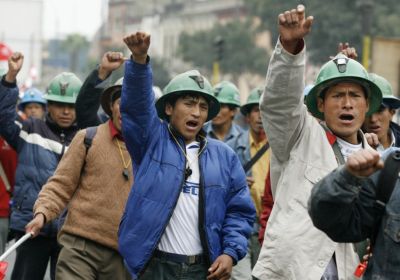 Tintaya is an open-cut copper and gold mine 4000 metres high in the district of Yauri, Espinar province, southern Peru. It is a spectacle of modern industrial devastation that contrasts jarringly with the timeless beauty of the surrounding altiplano landscape. Finally, after years of aggravated environmental abuse, the mine's owner, Swiss-based Xstrata, will be investigated by Peruvian authorities. After the discovery of large deposits, a copper mine was established at Tintaya in the mid-1980s. Extractive operations were hugely expanded when BHP bought the site in 1996.
Tintaya is an open-cut copper and gold mine 4000 metres high in the district of Yauri, Espinar province, southern Peru. It is a spectacle of modern industrial devastation that contrasts jarringly with the timeless beauty of the surrounding altiplano landscape. Finally, after years of aggravated environmental abuse, the mine's owner, Swiss-based Xstrata, will be investigated by Peruvian authorities. After the discovery of large deposits, a copper mine was established at Tintaya in the mid-1980s. Extractive operations were hugely expanded when BHP bought the site in 1996. -
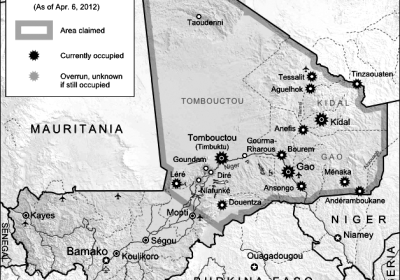 The new, interim president of Mali is holding out the possibility of “all out war” against the rebellion of the oppressed, Touareg nationality that has swept the north of the western African country. Dioncounda Traore took over the presidency on April 12 in a deal with the military officers who overthrew the elected president on March 21. He immediately called on the rebels to "return to the fold and to strengthen this nation instead of dividing it". BBC reported on April 12 that Traore said if they did not yield, "we will not hesitate to wage a total and relentless war".
The new, interim president of Mali is holding out the possibility of “all out war” against the rebellion of the oppressed, Touareg nationality that has swept the north of the western African country. Dioncounda Traore took over the presidency on April 12 in a deal with the military officers who overthrew the elected president on March 21. He immediately called on the rebels to "return to the fold and to strengthen this nation instead of dividing it". BBC reported on April 12 that Traore said if they did not yield, "we will not hesitate to wage a total and relentless war". -
Venezuela’s national minimum wage is to rise 32.25% this year, Venezuelan President Hugo Chavez said on April 7. In a televised address from Miraflores presidential palace in Caracas, Chavez said the wage rise would take place in two phases, ― first on May 1 and then a further rise on September 1.
-
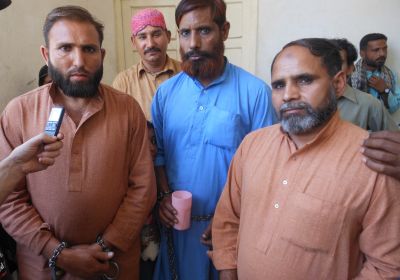 Power loom workers in Faisalabad, a big industrial centre in central Pakistan, launched a series of strikes and demonstrations in mid-2010. Six leaders of the organisation of power loom workers, the Labour Qaumi Movement (LQM), were arrested by the police. The six were charged under anti-terror laws and sentenced to a total of almost 490 years' jail (served concurrently). The jailed LQM leaders are also members of the Labour Party Pakistan (LPP).
Power loom workers in Faisalabad, a big industrial centre in central Pakistan, launched a series of strikes and demonstrations in mid-2010. Six leaders of the organisation of power loom workers, the Labour Qaumi Movement (LQM), were arrested by the police. The six were charged under anti-terror laws and sentenced to a total of almost 490 years' jail (served concurrently). The jailed LQM leaders are also members of the Labour Party Pakistan (LPP).